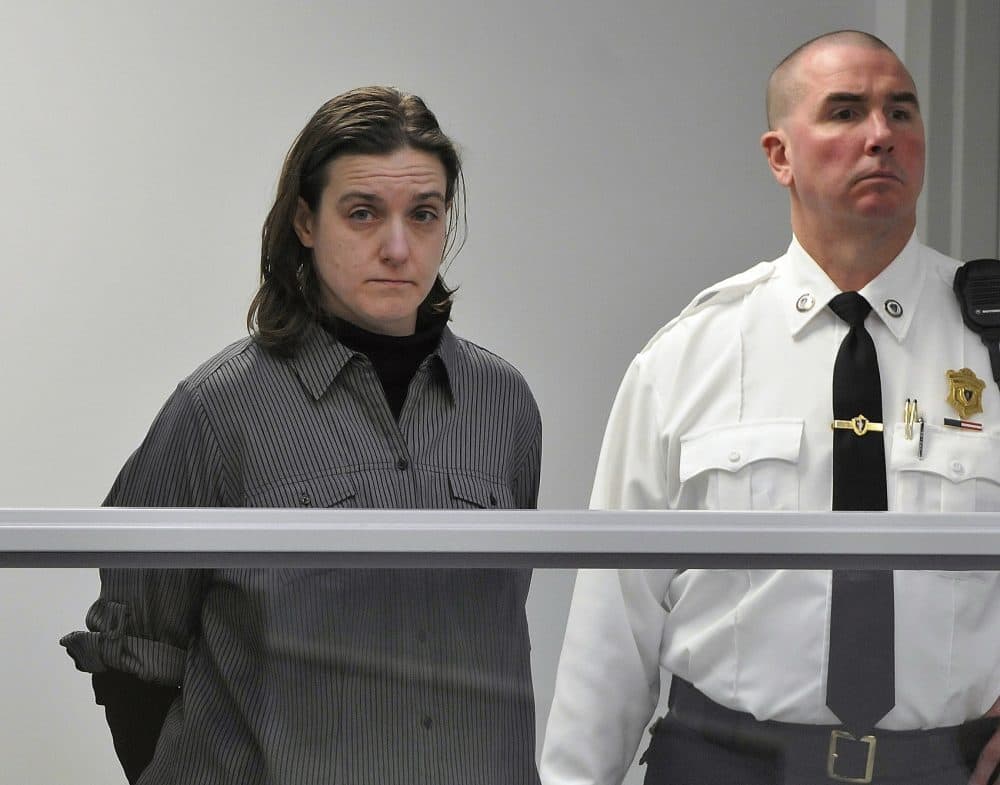Advertisement
Mass. High Court Considers Fining AG's Office In Drug Lab Case
Resume
The Massachusetts attorney general's office went on the defensive during a state Supreme Judicial Court hearing Tuesday.
The SJC is reviewing whether to impose monetary sanctions against the attorney general because two former assistant attorneys general did not disclose evidence about the extent of the misconduct by former chemist Sonja Farak.
A lower court judge found that the two former AGs committed fraud by withholding evidence about Farak's drug use. Initially, investigators said her use went on for just a few months — but it was discovered that prosecutors had Farak's mental health records showing that she frequently used drugs from the lab, that she worked while under the influence, and that she had unfettered access to the Amherst lab.
'The Most Significant Record Of Harm'
The American Civil Liberties Union of Massachusetts is asking for the sanctions and for so-called "standing orders" to prosecutors — reminding them that they must disclose exculpatory evidence.
"There is no other remedy in this case that has been ordered by this court that goes directly to the most serious misconduct, which was the chief law enforcement officer of the commonwealth defrauding the Superior Court and harming thousands of people," said the ACLU's Matt Segal. "This is the most significant record of harm as a consequence of prosecutorial misconduct that this court has ever seen."
Arguing for the attorney general was Assistant AG Thomas Bocian, who said monetary fines are not justified. He said the attorney general has already taken steps to prevent another lab scandal.
"We all agree that things went very, very seriously wrong here and that broad remedies are needed to restore confidence in the criminal justice system," Bocian said.
Although the lower court judge found fraud on the part of the two former assistants, Bocian pointed out that the judge also commended the AG for investigating.
"When the court looks at the testimony of those in the AG's office at the time, the record shows concern and confusion," Bocian said. "In retrospect, we could have done things better. There is no evidence that finds the AG's office did something wrong, much less sanctionably wrong."
'We Don't Know How Long This Went On'
The high court has agreed to dismiss 8,000 cases believed to be based on drug evidence tested by Farak. Segal and state public defenders say more cases should be dismissed, dating back to when Farak started working at the Amherst lab in 2004. They estimate that could mean a total of 19,000 criminal cases dismissed.
When Justice Scott Kafker asked if there was any evidence of Farak falsely claiming a substance tested positive as an illegal narcotic when it was not, Rebecca Jacobstein, with the Committee for Public Counsel Services, said there is little hard evidence about Farak. Jacobstein said there was never a thorough investigation and most of the information about what happened at the lab is from Farak herself, who was granted immunity for testifying after she was convicted.
Farak "was tampering with evidence and with unassigned samples," argued Jacobstein. "We don't know how long this went on -- there was no adequate investigation from the attorney general. So to allow these convictions to stand is to say you're protecting your convictions, no matter how fair they are."
Chief Justice Ralph Gants asked what preventative steps the high court might take — especially because the Farak case happened as the state was dealing with the Annie Dookhan lab scandal. Perhaps it was easier, Gants said, for those in the criminal justice system to avoid trying to unravel what happened.
"I understand what a nightmare this has been and I understand how many thousands of hours the DAs and defense attorneys have had to devote to addressing this issue and I know there is a reluctance to open up a nightmare," Gants said.
But Joseph Pieropan, who argued for the district attorneys, said the DAs did investigate. He also said there are already the necessary systems in place to hold people accountable.
"The DAs do not shirk from any nightmare," Pieropan said. "To claim that a prosecutor were to hide evidence for five years -- that would result in an indictment. Those days might be coming as well."
The Board of Bar Overseers is investigating the two former assistant attorneys general -- Kris Foster and Ann Kaczmarek -- who are no longer prosecutors.
The SJC is expected to issue a ruling in a few months.
This segment aired on May 8, 2018.
